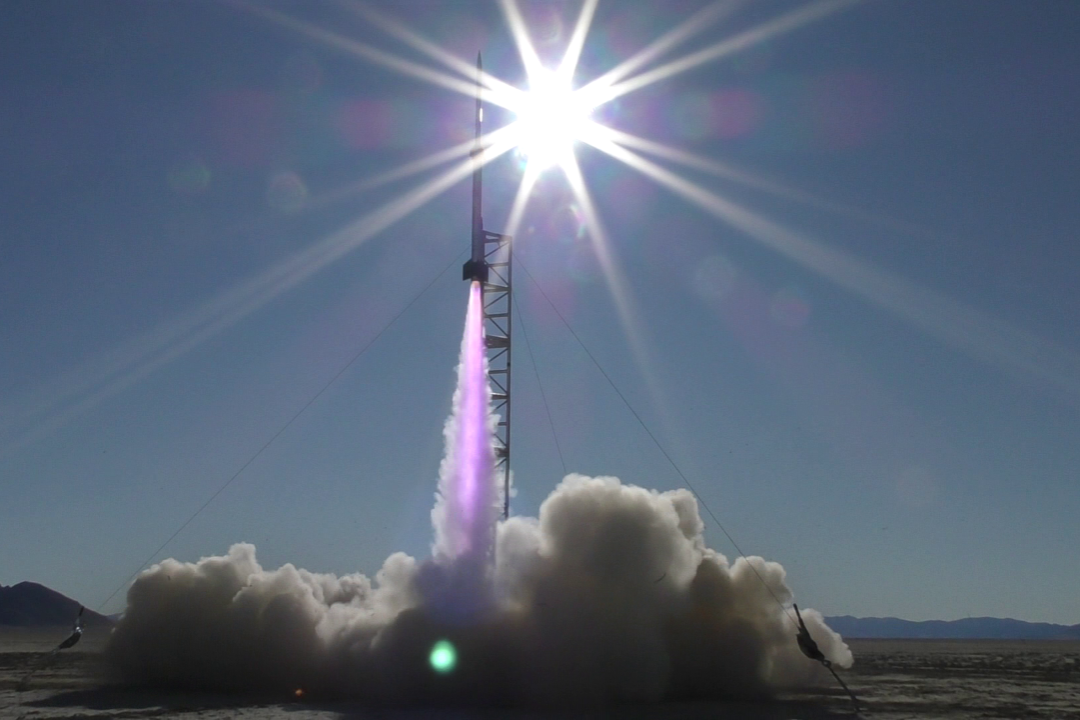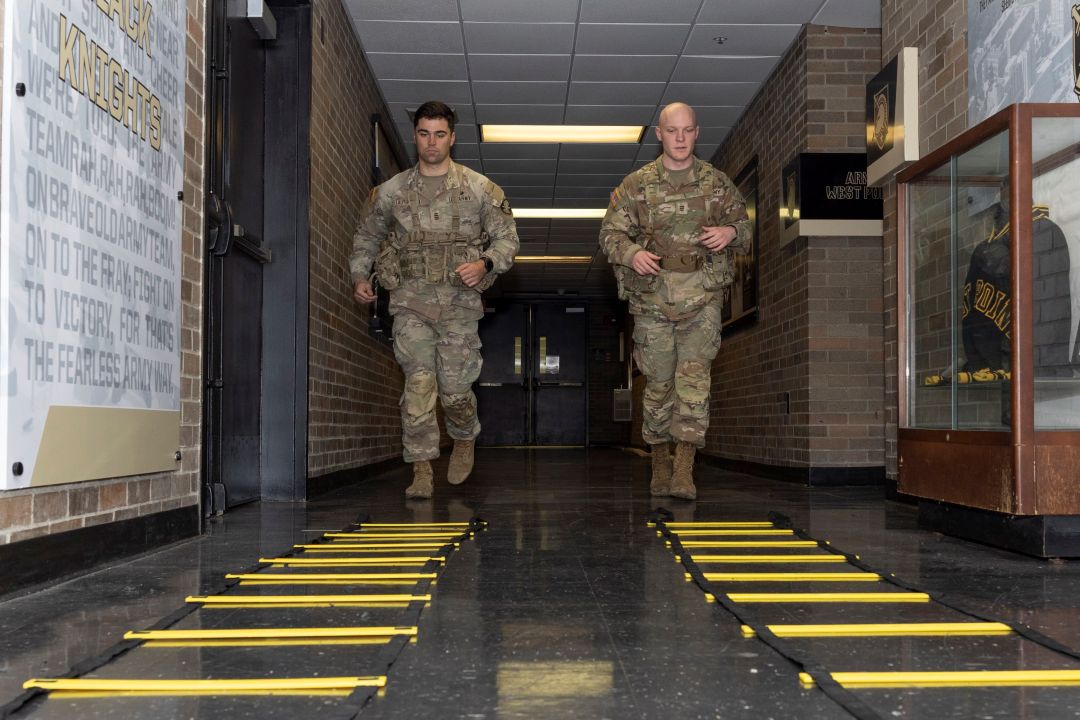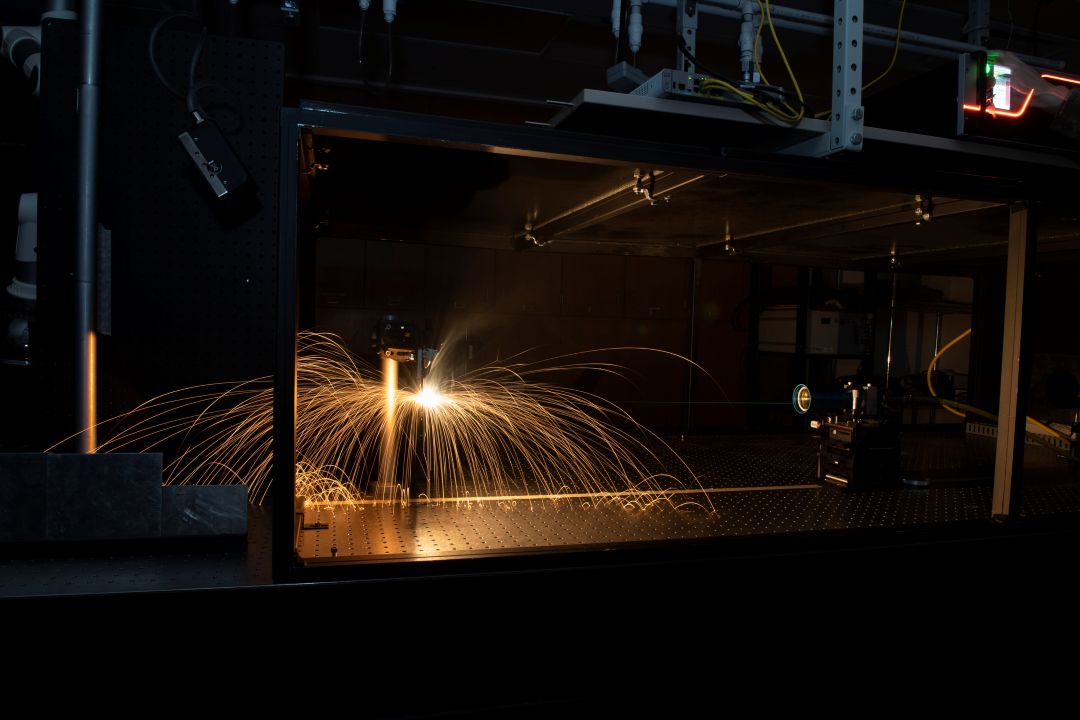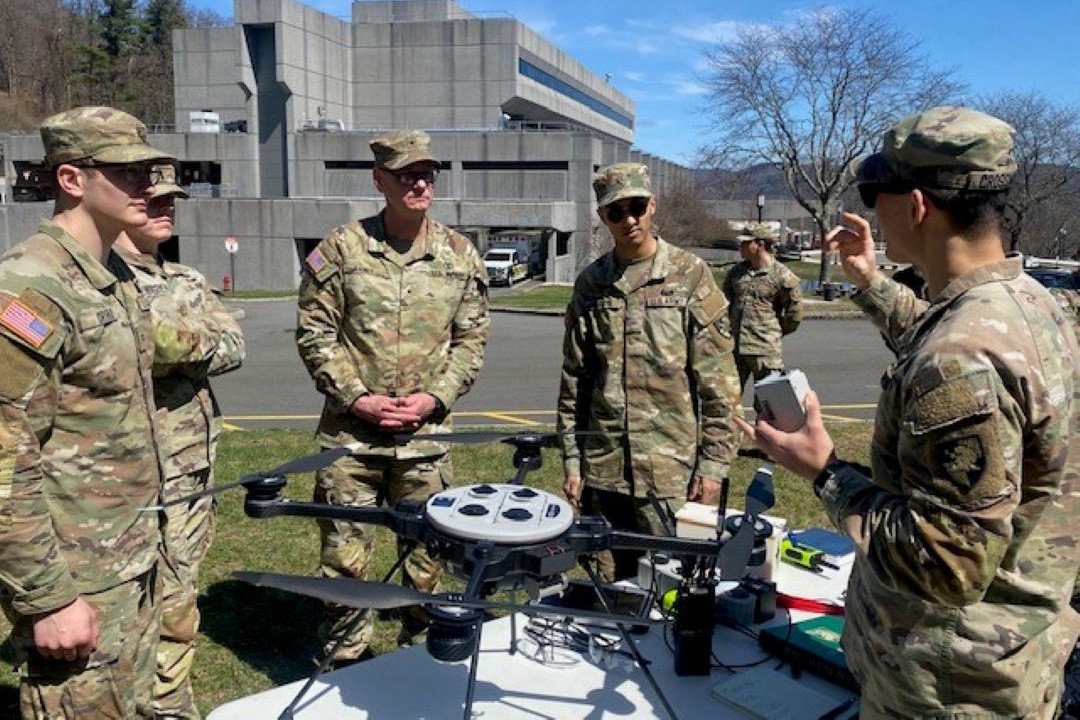Breadcrumb
Research

The Power of the West Point Werx
The West Point Werx at the U.S. Military Academy (USMA) enhances cadet leader development by bringing together cadets, faculty, and partners in an environment that deliberately fosters collaboration, integration, and synchronization of ideas. Through dynamic collaboration and strategic partnerships, the Werx is tackling the Army’s and the Nation's most pressing challenges head-on.
- Warrior Scholars: Scholars - across multiple disciplines - with military and other national defense experience.
- Interdisciplinary Agility: Can rapidly converge on important questions with subject matter experts from across disciplines.
- Unique Position: Can collaborate with relevant military, industry, and academic partners.
- Future Warfighters: Innovation at the academy starts with cadet education through project-based learning that can apply knowledge to solve real-world problems impacting national defense.
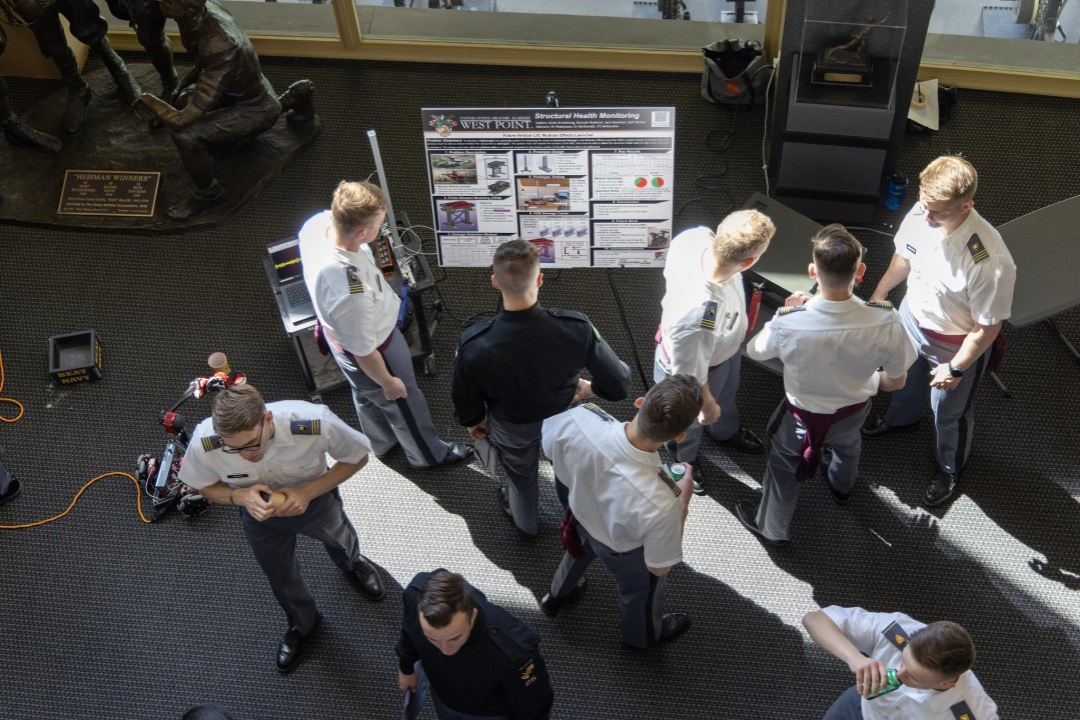
Experience Cadet Innovation in Action
Discover the power of hands-on learning at West Point’s Projects Day Research Symposium, where cadet innovation takes center stage. Each spring, more than 900 cadets showcase over 350 research projects through dynamic presentations, posters, and live demonstrations across the academy grounds. Partnering with over 70 collaborators from government, industry, and academia, cadets tackle real-world military, scientific, and societal challenges - turning ideas into impactful solutions and showcasing the future leaders of innovation.
Highlights of Past Symposiums
Engineering Centers and Institutes
Housed in the Department of Mechanical & Aerospace Engineering, the Center for Applied Engineering mission is to provide exceptional engineering research and development opportunities to enhance the education of cadets, advance the professional development of faculty members, and deliver intellectual capital to the Army and the Nation to support the warfighter.
Housed in the Department of Geography & Earth Sciences, the Center for Environmental and Geographic Sciences (CEGS) facilitates, supports, and champions a research program in environmental engineering and science and the geographic sciences to enhance the education of cadets and develop faculty professionally, while addressing the most important and complex challenges facing our Army and the nation.
As the research arm of the Department of Geography & Earth Sciences, CEGS:
- connects the department's intellectual capital with partners, collaborators, and customers;
- leverages the department's intellectual capital through applied research and design projects;
- champions the department's intellectual capital via integrated outreach and engagement.
Housed in the Department of Physics & Nuclear Engineering, the Nuclear Science and Engineering Research Center (NSERC) is a Defense Threat Reduction Agency (DTRA) office located at USMA, which exists to facilitate Countering Weapons of Mass Destruction (CWMD) research at the Department of Defense degree-granting institutions. These institutions include:
- USMA
- U.S. Naval Academy (USNA)
- U.S. Air Force Academy (USAFA)
- Air Force Institute of Technology (AFIT)
- Naval Postgraduate School (NPS)
The NSERC provides students and faculty with the opportunities and resources to solve problems of national interest in support of the DTRA CWMD portfolio. Students and faculty who perform research for the NSERC have the opportunity to publish technical reports and peer-reviewed papers and present conference talks.
Housed in the Department of Systems Engineering, the Operations Research Center (ORCEN) provides a dedicated analytical capability that engages problems of national significance to enrich cadet education, enhancing the professional development of Operations Research Systems Analysis Officer Faculty, integrating emerging technologies and analytical tools into the Academic Program, and sustaining ties between the academy, the Army, and DoD.
The ORCEN is committed to providing sound, unbiased, analytical research supporting our DoD partners. Our combination of military and civilian analysts brings both recent operational experience and academic pedigrees from top-tier universities.
Housed in the Department of Electrical Engineering & Computer Science, the Robotics Research Center (RRC) is the academy's premier resource for technical expertise and academic scholarship in robotics and autonomous systems (RAS).
The center enables interdisciplinary cooperation, concentrates on academy-wide research efforts, and supports margin-of-excellence activities focused on RAS. It also includes the Laboratory for Artificial Intelligence Research & Engineering (LAIRE).
The RRC's mission is to provide cadets, staff, and faculty with an opportunity to conduct basic and applied research on RAS and prepare them to lead in an Army that relies more on artificial intelligence and autonomous systems.
It is USMA's largest research center in terms of operating budget, personnel, resources, and capabilities.
Housed in the Department of Physics & Nuclear Engineering, the U.S. Army Space and Missile Defense Command Space and High-Altitude Research Center (SMDC-SHARC) provides space operations education and directs space, high-altitude, and missile defense research at West Point to develop warfighting concepts and space-smart leaders for the Army and the Army's contribution to the Joint Force.
SMDC-SHARC's vision is to provide a modern space, high-altitude, and missile defense research center that inspires future generations of Army leaders and develops capabilities to support the warfighter.
Housed in the Department of Systems Engineering, the mission of the Systems Design and Analysis Center (SDAC) is to focus high-quality research, information dissemination, and professional practice on the design and analysis of next-generation, complex, large-scale, interdisciplinary systems in the national defense operating environment while serving as a vibrant hub for cadet and faculty intellectual development.
The SDAC serves as a nationally recognized Systems Engineering Education Research Center at West Point; coordinates and resources engaged scholarship opportunities for cadets in the systems engineering and engineering management disciplines; and connects Army, DoD, academia, and industry partners to provide solutions to problems of national and global significance.
The SDAC's goals include:
- Advancing the discipline of systems engineering by researching, applying, and publishing novel knowledge and techniques related to systems design and analysis.
- Enhancing West Point’s reputation as an intellectual asset for the DoD and the nation.
- Enhancing West Point’s reputation as the national leader in undergraduate education.
Cyber and Simulation Centers and Institutes
Housed in the Department of Electrical Engineering & Computer Science, the Army Cyber Institute was established with the mandate to conduct high-quality research on the Army’s most critical cyber-related challenges, to perform outreach to bridge gaps, and to promote information exchange across Army, military, academic, industry, and government cyber communities.
The institute supports the Army and its cyber community in providing both future recommendations and their current implications. The ACI analyzes today’s public and private trends in technology and talent management development, not for today but to be ready for tomorrow.
The ACI's efforts support the force proponent with insights and recommendations; our research will enable operations to plan for future threats and possibilities, and the partnerships we develop through our efforts will enable collaborative efforts.
Housed in the Department of Electrical Engineering & Computer Science, the Cyber Research Center (CRC) is one of three research centers in the Department of Electrical Engineering & Computer Science. The research centers exist to provide opportunities for development to both cadets and faculty, above and beyond the curriculum.
The CRC focuses on opportunities and research that span the entire continuum of cyberspace operations. Its mission is to educate and inspire cadets in cyberspace operations, find and sustain margin of excellence opportunities for cadets and faculty, and build and maintain ties with the Army and national cyberspace operations community to develop the skills necessary to fight and win in the cyber domain.
Housed in the Department of Military Instruction, the West Point Simulation Center serves as the liaison to the Army Modeling and Simulations Office (AMSO). The center is tasked with the analysis, design, development, and implementation of modeling and simulation technology in support of the United States Corps of Cadets' mission.
The center maintains a specific focus on applying modeling and simulation technology, as well as the implementation of new hardware and software technologies, to enhance cadet education and training, creating authentic learning environments that enable instructors to offer cadets a more robust learning environment, better preparing them for the challenges they will face as Army officers.
Humanities, Social Sciences, and Law Centers and Institutes
Housed in the Simon Center for the Professional-Military Ethic, the Center for Junior Officers is an official Army platform and acts as an Army-wide scholarship and resource repository that creates and curates knowledge and experiences for and of junior officers. Through this, we pursue the center’s vision of helping build a generation of Army officers inspired to lead and serve honorably in their profession.
Co-housed in the Department of English & World Languages and the Department of Geography & Earth Sciences, the mission of the Center for Languages, Cultures, and Regional Studies (CLCRS) is to pursue applied and theoretical research in instructional design and delivery, experiential learning, and assessment in foreign language proficiency, intercultural competence, and regional expertise in support of the academy’s academic and military program goals and Army and DoD requirements.
Housed in the Department of History & War Studies, the mission of the Center for Oral History (COH) is to record, preserve, and present the stories of soldiers, statesmen, and others who have influenced the profession of arms to inspire, educate, and develop cadets, enhance the public’s understanding of the experience of the Soldier, and create new primary source material for scholars.
Unlike many oral history programs, the COH provides content that includes both audio and video components, enabling viewers not only to hear the speaker’s tone, emphasis, and cadence but also to observe body language and facial gestures indicating introspection or amusement, adding a powerful emotional element to the user experience.
Housed in the Department of Geography & Earth Sciences, the mission of the Center for the Study of Civil-Military Operations (CSCMO) is to develop all West Point leaders so that they are prepared to employ an understanding of Civil-Military Operations (CMO)* within the framework of the broad spectrum of challenges they will face in military service; to support transformational changes to professional military education across the DoD and partner organizations, and to establish West Point as the wellspring of professional military education in the realm of CMO.
The center accomplishes its missions by connecting our cadets to the civil-military operations environment through our Four Pillars. Each domain provides a wealth of learning that accompanies cadet transformations from entering civilians to military students to civil-military practitioners as they embark on a path to leadership supporting the Army.
*Civil-military operations are defined as the activities of a commander that establish, maintain, influence, or exploit relations between military forces, governmental and nongovernmental civilian organizations and authorities, and the civilian populace in a friendly, neutral, or hostile operation area to facilitate military operations, to consolidate and achieve operational U.S. objectives.
Housed in the Department of Social Sciences, the Combating Terrorism Center (CTC) at West Point educates, advises, and conducts research to equip present and future leaders with the intellectual tools necessary to understand the challenges of terrorism and counterterrorism.
The center embraces the unique responsibility of preparing cadets and other counterterrorism practitioners to think critically about the challenges they will face during war and peace.
The CTC is committed to producing objective, rigorous, and policy-relevant research that applies theory to practice, informs strategic counterterrorism thinking, and moves the boundaries of academic knowledge.
It also leverages its expertise and unique position to contribute to discrete advisory efforts for federal, state, and local government, as well as to build bridges between counterterrorism stakeholders.
Housed in the Department of History & War Studies, the Digital History Center (DHC) encourages, coordinates, and supports the efforts of our faculty and cadets in the creation of digital history products and works to sustain and continuously improve the digital textbooks and other resources used to enhance the learning of cadets in the courses we teach. It also serves the wider historical community by making available digital resources that support learning about, teaching, or connecting with history, including digital versions of our widely used maps.
The DHC is a world leader in the field of digital history. This encompasses both a methodological approach to asking and answering questions about the human past that would have been impossible or impractical to tackle without the aid of computers and the use of digital tools for communicating historical sources and analysis in better ways than traditional media allow.
Housed in the Department of Law & Philosophy, the Lieber Institute for Law and Warfare fosters a deeper understanding of the complex and evolving relationship between law and warfare. The institute leverages academic and military expertise to examine the role of the law of armed conflict in emerging conflicts worldwide and ensure the law’s relevance in contemporary warfare.
In today’s complicated battlespaces, the continued effectiveness and enforceability of the law are highly dependent on whether the expressed rules remain definitive, understood, and accepted. Yet contentious topics highlight a troubling lack of unanimity in the international community concerning the law. The Lieber Institute aims to address this challenge by creating a diverse community of thought through its events, publications, speaking engagements, research, and education initiatives. Only by proactively keeping the law of armed conflict relevant may the primacy of international law remain unquestioned in contemporary warfare.
The Modern War Institute (MWI) is a national resource that studies recent and ongoing conflicts to prepare present and future leaders to win in a complex world. Leveraging the intellectual capital unique to West Point, MWI faculty use a research, education, and integration model to remain academically grounded, operationally connected to the force, and fully engaged with cadets and the military program curriculum.
As such, MWI directly enhances the quality of cadet military education and training through scholarship, multi-disciplinary contemporary battlefield assessments, symposia, curriculum updates, academy outreach, and strategic communication.
Housed in the Department of Social Sciences, the Office of Economic & Manpower Analysis serves as a key resource for shaping Army policy and planning. It leverages the academic environment to foster innovative, data-driven solutions to strategic challenges facing today's Army officers.
Through innovative research, academic collaboration, and multidisciplinary expertise, OEMA provides actionable insights that shape policies for the Army of the future.
Housed in the Department of History & War Studies, the mission of the Resnick Center for Holocaust and Genocide Studies is to instill within current and future military leaders a sophisticated understanding of the Holocaust and other instances of genocide and to inspire them to prevent future atrocities in their roles as military leaders. The center provides a critical space for research, teaching, and collaboration in past and present interdisciplinary studies.
The center is internationally recognized as the hub of teaching, research, and practice for military education and training about mass atrocity and its prevention. Its unique work ensures that the U.S. Military Academy, Army, and the DoD are permanently innovating, expanding the toolbox available for detection and prevention, and educating cohorts of officers equipped with the knowledge and skills necessary to wrestle with humanity’s worst conflicts.
The West Point Music Research Center's mission is to provide cadets, staff, and faculty with the opportunity to conduct multi-disciplinary research in the auditory domain to increase the knowledge of music as a ubiquitous component of cultural and national identity.
The center is dedicated to understanding and communicating the effects of music through multi-disciplinary research and analysis by providing innovative solutions and discoveries through international collaborations with leading academic departments, research centers, and industry.
Housed in the Department of Law & Philosophy, the West Point Center for the Rule of Law (CROL) plays a vital educational role in promoting respect for the rule of law during peacetime and armed conflict.
The CROL's mission is three-fold:
- Educate and imbue future leaders of our Army and nation with a sophisticated appreciation for the rule of law as a central tenet of professional military ethics and a deep understanding of its principles.
- Inspire and contribute meaningfully to innovative, national, and international legal debate and policy development.
- Position West Point as the premier institution in the world for both academic excellence and military leadership, as a leader in promoting the rule of law.
The CROL sponsors numerous cadet development opportunities, including academic trips, summer internships, and guest speakers throughout the year.
Housed in the Department of Behavioral Sciences & Leadership, the West Point Leadership Center aims to advance and nurture responsible leadership development within West Point, the Army, government entities, educational institutions, and corporations.
Through speaker series, conferences, intercollegiate exchanges, curriculum development, and sound research, the center’s impact will be experienced by cadets and leaders around the world.
Mathematical and Physical Sciences Centers and Institutes
Housed in the Department of Mathematical Sciences, the Center for Leader Development in STEM's mission is to increase the recruitment and retention of students interested in science, technology, engineering, and mathematics (STEM). This mission aligns with the national need to increase the number of STEM experts, for a talent shortage threatens the country’s ability to drive innovation, compete internationally, and protect national security.
USMA is one of the country’s most highly regarded undergraduate engineering schools, requiring competency in STEM among all its cadets.
The center has developed a comprehensive program that extends from the middle school level to the graduate and professional level, seeking to build a stronger STEM career path.
Housed in the Department of Mathematical Sciences, the Center for Data Analysis and Statistics (CDAS)'s purpose is to serve as a strategic hub for specialized expertise, focusing on the application of statistical methods to address complex challenges within the West Point community and throughout the Department of Defense.
The center's primary objective is to support the professional development of faculty members, equipping them with essential tools and knowledge for proficient data analysis. Additionally, CDAS is dedicated to enriching the educational experience of cadets by integrating cutting-edge statistical methods into classroom instruction.
CDAS is driven by making a meaningful and enduring contribution to the Army community, leveraging our proficiency in data analysis to provide valuable insights that enhance decision-making processes within the Department of Defense.
The center is pivotal in establishing and fostering professional connections, offering essential assistance for statistical initiatives at West Point and across the DoD. Leveraging technical expertise, CDAS actively facilitates the professional development of staff and faculty within USMA.
To fortify these connections, CDAS orchestrates impactful linkages through various avenues, including summer internships, year- and semester-long cadet research projects, and faculty research initiatives. CDAS actively contributes to advancing knowledge, skills, and collaboration in statistics and data analysis through these initiatives.
Housed in the Department of Mathematical Sciences, the Mathematical Sciences Center (MSC) provides a focal point for faculty and staff to conduct research activities in the mathematical sciences and to solve problems that extend beyond the classroom to support our Army's mission and USMA's goal of educating future army officers for a changing world.
The MSC contributes to the academy's mission through contributions to cadet education, professionally developing the faculty, and enhancing USMA’s reputation.
Housed in the Department of Chemical & Biological Science & Engineering, the Center for Molecular Science's mission is to support the Army and USMA by serving as the focal point for the department in chemistry, chemical engineering, and biological sciences research and outreach activities, leveraging intellectual capital, building strategic relationships, and developing chemical education pedagogy.
While completing their undergraduate studies, cadets can engage in laboratory work for academic credit. This involves planning, executing, and reporting engineering and science experiments under the guidance of CBSE faculty members. The work may complement AIAD (summer internship) experiences in the summer at locations away from West Point or be a stand-alone set of experiments.
Co-housed in the Department of Physics & Nuclear Engineering, the Department of Electrical Engineering & Computer Science, and the Department of Chemical & Biological Science & Engineering, the Photonics Research Center (PRC) is the hub for cutting-edge research in harnessing the power of light. Experts from diverse fields, including physics, engineering, and chemistry, collaborate on research involving lasers, fiber optics, remote sensing, and more.
The PRC fosters a dynamic and interdisciplinary environment where students can contribute to DoD-related research.
Interested in the Innovation Hub?
Contact usResearch Support at West Point
Resources for USMA Personnel (password-protected)
Resources for USMA Research Staff and Faculty (password-protected)
For Recurring Data Collection:
- With a survey number: Contact the Office of Institutional Research
- Without a survey number: Contact the Human Resources Protections Program
For One-Time Data Collection: Contact the Human Resources Protections Program
The Office of Data and Analytics (ODA) develops and oversees the data and data management systems necessary to empower leaders at all levels to make data-informed decisions, minimize USMA's risks related to data, and underpin critical unstructured decisions.
Office of Research
USMA's Office of Research actively engages with a broad network of federal, academic, and industry partners to amplify the academy’s research efforts, plays a pivotal role in identifying funding opportunities, and drives interdisciplinary projects that address crucial challenges for the Army and nation.
Human Research Protections Program (HRPP)
USMA HRPP is a community of cadets, researchers, and administrators who collectively produce high-quality research, while remaining in compliance with all applicable regulations and striving for high ethical standards and professionalism.
Office of Institutional Research
The Office of Institutional Research (OIR) collects and analyzes institution-level data to inform decision-making and strategic planning. The office supports institutional assessment and compliance with external institutional data reporting requirements. OIR's focus on data-driven insights contributes to effective decision-making and the continuous improvement of USMA.
